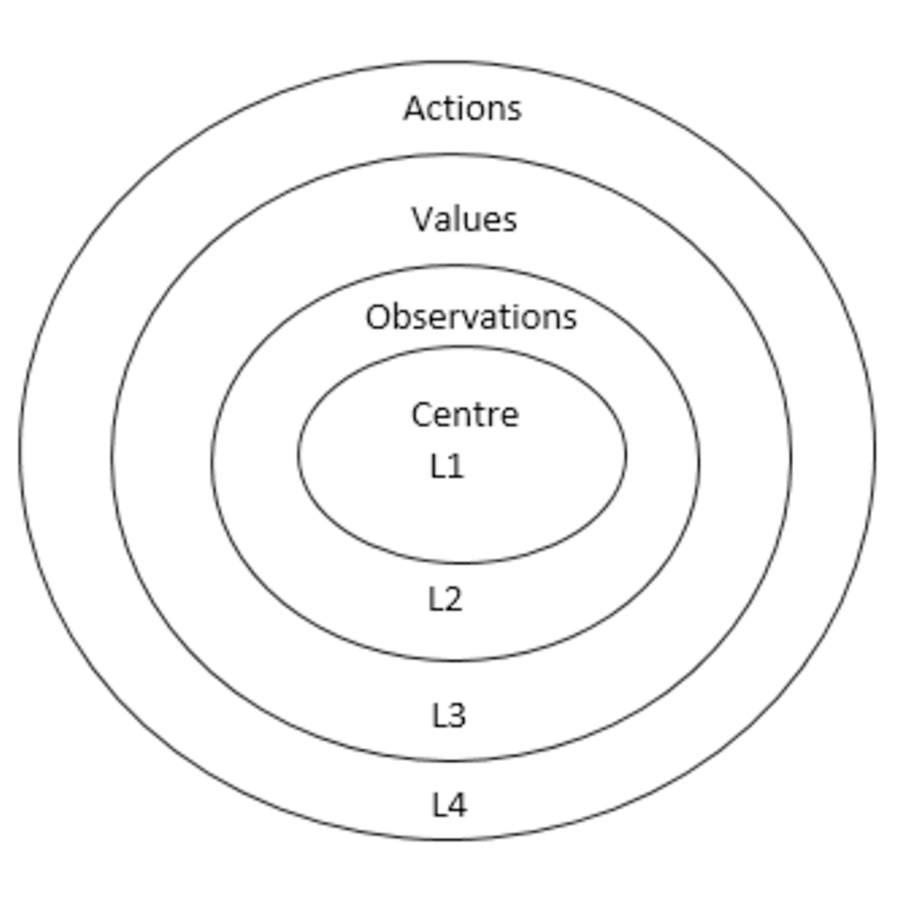The views expressed in our content reflect individual perspectives and do not represent the authoritative views of the Baha'i Faith.
The historian and religious scholar Udo Schaefer wrote that “Being a Baha’i is not a matter of name, nor merely of belonging to a community.”
To explain what he meant he shared:
Once when Abdu’l-Baha was asked what a Baha’i was, he answered: “To be a Baha’i simply means to love all the world; to love humanity and try to serve it; to work for universal peace and universal brotherhood.” In one of his talks in London, he said that someone could be a Baha’i even if he had never heard the name of Baha’u’llah: “The man who lives the life according to the teachings of Baha’u’llah is already a Baha’i. On the other hand, a man may call himself a Baha’ifor fifty years, and if he does not live the life he is not a Baha’i. – The Light Shineth in Darkness, p. 39.
This theme of the importance of action appears repeatedly in the Baha’i Writings: “The essence of faith,” Baha’u’llah wrote, “is fewness of words and abundance of deeds.” – Tablets of Baha’u’llah, p. 156. He calls on us to act on our spiritual principles, not just to profess them:
Say O brethren: Let deeds not words be your adorning. – The Hidden Words, pp. 23-24.
The betterment of the world can be accomplished through pure and goodly deeds, through commendable and seemly conduct. – Baha’u’llah, quoted by Shoghi Effendi in The Advent of Divine Justice, p. 24.
In fact, one of the talks Abdu’l-Baha gave in Paris focused on this theme. In it he clarified that:
The wrong in the world continues to exist just because people talk only of their ideals, and do not strive to put them into practice. If actions took the place of words, the world’s misery would very soon be changed into comfort. – Abdu’l-Baha, Paris Talks, p. 16.
So, with all this focus on actions and deeds a valid question arises–does it matter what I believe? Does it matter how I articulate my values? Does it matter which way I see the world? Does it matter if I believe in God? It matters only how I act, right?
Here’s my understanding of the answer to these questions: when taken in isolation, the answer is “Yes, those things do not really matter.” No one is superior or better for the character of their inner beliefs or their mental vision of the world:
A man who does great good, and talks not of it, is on the way to perfection … People make much profession of goodness, multiplying fine words because they wish to be thought greater and better than their fellows, seeking fame in the eyes of the world. Those who do most good use fewest words concerning their actions. – Abdu’l-Baha, Paris Talks, p. 16.
But I would suggest that the answers we might give about our beliefs and values have a strong role in shaping the way we think and feel—which shapes the way we act.
 To explore this I would like to suggest we consider a belief system with four distinct levels. At the core, the central belief can be understood as the cornerstone of the belief system. We can think of it as the lens through which we look at the world (or frame of reference, as used in the sciences). This lens gives rise to our observations of the world. These observations then form the foundation around which we build our values, which then define our actions—the way we express in the world the three other levels of belief.
To explore this I would like to suggest we consider a belief system with four distinct levels. At the core, the central belief can be understood as the cornerstone of the belief system. We can think of it as the lens through which we look at the world (or frame of reference, as used in the sciences). This lens gives rise to our observations of the world. These observations then form the foundation around which we build our values, which then define our actions—the way we express in the world the three other levels of belief.
The farther one moves away from the center, the more visible and understandable each level becomes. We can think of it as a river flowing downstream, where the caudal widens as it descends, making it much more visible and powerful, even though it originates as a thin stream up in the mountains.
We can understand the role of this central belief in our belief system by looking at the physical world. The universe has an inherent mechanism that governs the functioning of its systems. For instance, the law of gravity is fundamental to how birds fly, rivers run, trees grow, planets orbit, etc. From a Baha’i perspective, gravity’s counterpart in the spiritual reality could be seen as the power of love:
Love is the light that guideth in darkness, the living link that uniteth God with man, that assureth the progress of every illumined soul. Love is the most great law that ruleth this mighty and heavenly cycle, the unique power that bindeth together the divers elements of this material world, the supreme magnetic force that directeth the movements of the spheres in the celestial realms. Love revealeth with unfailing and limitless power the mysteries latent in the universe. Love is the spirit of life unto the adorned body of mankind, the establisher of true civilization in this mortal world, and the shedder of imperishable glory upon every high-aiming race and nation. – Abdu’l-Baha, Selections from the Writings of Abdu’l-Baha, p. 27.
Every physical system has a center, something that regulates the functioning of its component parts. In the case of our solar system, the sun provides the center. Its mass determines the planet’s orbits, and its light and warmth enables the existence of life.
In the same way, the heart plays a fundamental role in our body. If for some reason its beat falters, doctors install a pace-maker to ensure the role of the heart continues. Although the heart itself no longer fulfills the role of regulating its own rhythm, the entire system (our body) would crash without something operating in its place. From this example, we can learn that a central role will always be fulfilled, even if not by the original entity.
In our personal system of beliefs we also have a central belief: a fundamental law, entity or force that governs the prolonged function of the system, and has implications like the sun or the heart do in the physical world. We could call this central belief the fundamental assumption from which all other thoughts and views originate.
Whether aware of it or not, and whether we want to accept it or not, we all have this fundamental assumption at our core. It’s woven into the fabric of reality, like gravity, to which we are subdued regardless of desire or consciousness.
















Comments
Sign in or create an account
Continue with Googleor